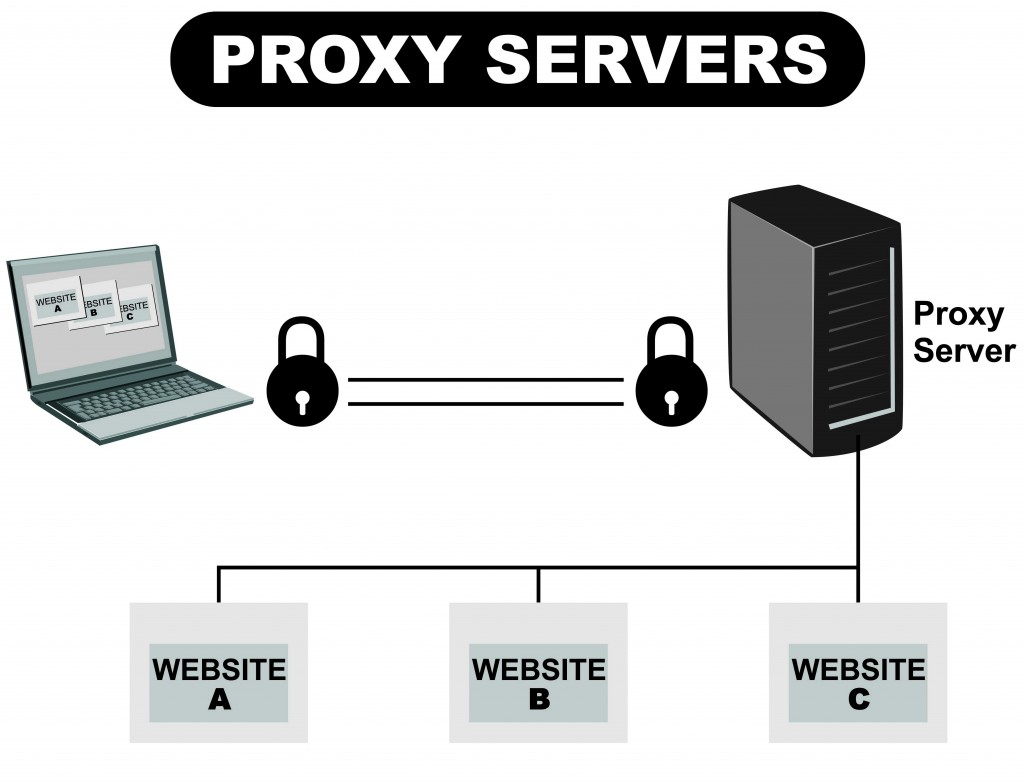As the world becomes more digital, maintaining online privacy has become vital. With threats like cyberattacks, and intrusive tracking techniques on the rise, many individuals and businesses are turning to proxy solutions as a powerful solution. These tools not only help hide user identities and also provide a variety of additional benefits that enhance protection and mitigate risks during online activities. Comprehending what a proxy server is and how it operates can enable you to take control of your online presence more effectively.
Proxy servers serve as intermediaries between your device and the internet, allowing you to surf the web anonymously and bypass area restrictions. Their flexibility means they can be employed for various purposes, ranging from boosting individual privacy while surfing the web to enhancing organizational cybersecurity strategies. As we investigate the basic principles of proxy servers, we will discuss the extra aspects they offer, such as increased productivity and the capability to access region-locked content. Throughout this article, we will uncover why proxy servers are commonly considered as the most effective tool for achieving real online privacy.
Grasping Proxy Servers
Proxy servers function as intermediaries between your computer and the web, processing demands for content like websites. Whenever you utilize a proxy server, the requests made by you are forwarded to the server first, which then transmits them to the intended website. This method conceals your IP address and can improve your online privacy and protection. By sending your internet traffic through a proxy, you can prevent sites from monitoring your personal information and location.
Several categories of proxy servers exist to address various needs, such as HTTP, SOCKS proxies, and transparent proxies. Every type has its unique features and applications. For example, HTTP proxies are best for surfing the web, while SOCKS proxy servers support various types of internet traffic, making them more flexible. https://guerra-watts.federatedjournals.com/proxy-servers-101-an-introductory-guide-to-anonymous-browsing to choose the right type based on your specific requirements, whether it is for casual browsing, content streaming, or information extraction.
In addition to improving privacy, these servers offer gains such as improved security against cyber threats. They can help screen harmful content and guard your identity from possible hackers. Nevertheless, not all proxy servers are equal in effectiveness, and their performance can differ. Understanding of the various functionalities and drawbacks of proxy servers helps users to decide effectively about their internet navigation approaches.
Advantages and Risks of Using Proxies
Utilizing proxy servers can significantly enhance online privacy by masking a user's IP address, making it harder for third parties to track internet usage. This added layer of anonymity allows individuals and businesses to browse the internet with a reduced risk of being monitored. Additionally, proxies can help bypass geo-restrictions, enabling access to content that may not be available in certain regions. This flexibility is particularly beneficial for academics and marketers who need to gather data from various locations.
Nevertheless, there are also risks associated with using proxy servers, especially free ones. Many free proxies can compromise users' security by logging data or injecting ads, which poses significant threats to privacy. Additionally, these proxies may have slower connection speeds or be unreliable, which can disrupt browsing or streaming experiences. It's vital for users to thoroughly vet any proxy service before proceeding to ensure they are not jeopardizing their security for the sake of convenience.
Moreover, while proxies provide anonymity, they do not inherently encrypt data the same way a VPN does. This means that even though your IP address might be hidden, your data may still be vulnerable to interception. Thus, users should carefully consider their needs and the level of security required when choosing between proxy servers and other solutions like VPNs, depending on the sensitivity of the information being accessed or transmitted online.
Proxy Servers in Particular Applications
Proxy servers are increasingly utilized throughout various sectors, each taking advantage of the enhanced anonymity and security they provide. Businesses are utilizing proxies to bolster their cybersecurity measures. By routing employee internet traffic through proxies, companies can manage and control the data exchanged, avoiding potential breaches and making sure sensitive information is kept protected. This method not only safeguards company data but also mitigates risks associated with employee misconduct online.
Regarding content streaming, proxies serve as a valuable tool for gaining access to geo-restricted services. Consumers can bypass regional restrictions on platforms like Netflix and Hulu by connecting through a proxy server located in a allowed country. This not only expands content availability but also improves the overall streaming experience. However, comprehending the subtleties of proxy types is important, as certain proxies may be more effective in avoiding detection by streaming services than other types.

Furthermore, gaming enthusiasts are utilizing proxies to improve their online experiences. By using proxies, gamers can reduce latency, circumvent IP bans, and access region-locked games. This has become necessary for competitive players who need every advantage possible in fast-paced environments. Moreover, with dedicated gaming proxies available, users can enjoy smoother gameplay while maintaining privacy, ultimately leading to an improved gaming experience.
